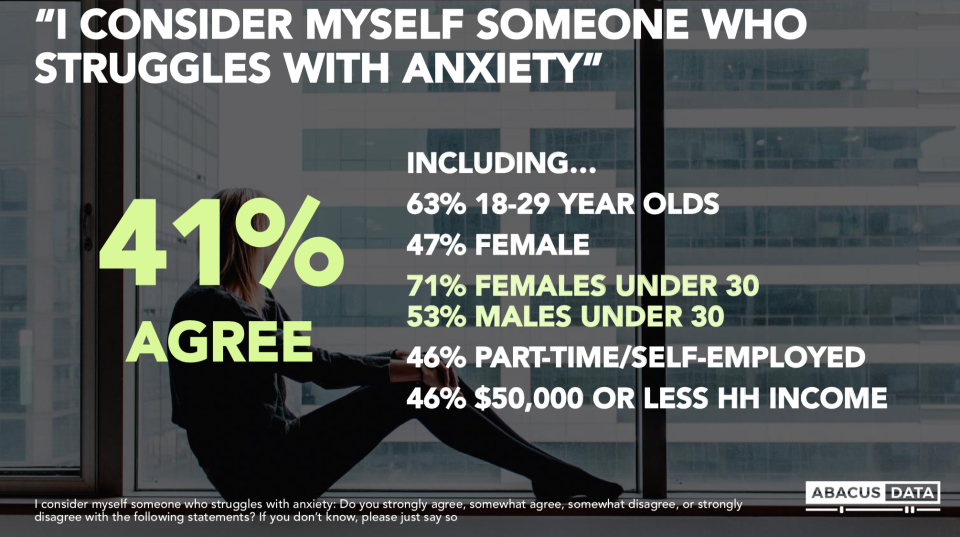What should you do if you think you have anxiety?
A study in Canada has revealed that in any given year, one in five people will personally experience a mental health problem or illness.
By the age of 40, 50 per cent of the population will have or have had a mental illness – staggering statistics, that might hit a little close to home for some of you.
However but it seems one of the most common forms of these illnesses is anxiety.
In Canada, 41 per cent of people identify themselves as struggling with anxiety, while 30 per cent say they have been formally diagnosed with the condition.

But what should you do if you think you have anxiety? Well, It depends on how much your symptoms affect your life.
“Where you would want to be concerned is if you’re having anxiety daily and that anxiety is interfering in your ability to do the things you want to do,” said Dr. Judith Laposa, a clinician scientist and psychologist on the Anxiety Disorders Clinic of the Mood and Anxiety Disorders Division at CAMH.
“Thats when you’d be looking at seeing mental health professional, physician, psychiatrist, psychologist, social worker, etcetera, depending on what the need is in terms of getting some assistance and decreasing those symptoms,” she explained.

According to the survey results, only six in 10 people think anxiety is curable, but with a mix of the right components, experiencing fewer symptoms is possible.
“The main treatments for anxiety disorders include psychiatric medication,” said Judith. “So typically the class of medications called SSRIs, selective serotonin reuptake inhibitors, tend to be the first line medications for most of the anxiety conditions.”
“The second main way is with psychological therapy, more talk-based therapy,” she continued. “The modality of treatment that has the most empirical research support is something called cognitive behavioral therapy or CBT therapy.”

According to Dr Judith, each type of anxiety disorder has a particular type of CBT that works specifically for it, so the outcomes for treatment tend to be very good.
“We also know that CBT can form a long-term protective advantage and that if you’ve completed a course of CBT where you’re actively changing the way you think and behave, there’s less of a risk of a relapse in the future if you have worked on changing those thoughts and behaviours,” Judith explained.
As for all the articles across the Internet that say they have the miracle cure for anxiety disorders with listicle tips such as “go for a walk,” or “eat more fruit,” Judith has some words of caution.
“Those can be helpful and we don’t want to discount the utility of some of these things but they’re probably not sufficient for difficulty,” she said. “We know that if someone’s anxiety is at the level of a disorder, there are specific interventions that we know are very important and necessary for those anxiety symptoms to go away.”

“Most anxiety disorders are quite responsive to treatment,” said Judith.
“So there’s also a huge reason to be optimistic that if this is something that someone is struggling with an anxiety disorder, that there are also highly effective treatments for helping people to decrease those symptoms and interference in their life functioning.”
Got a story tip? Send it to tips@oath.com
Want more lifestyle and celebrity news? Follow Yahoo Lifestyle on Facebook, Twitter and Instagram.
Or sign up to our daily newsletter here.

 Yahoo Lifestyle
Yahoo Lifestyle 

